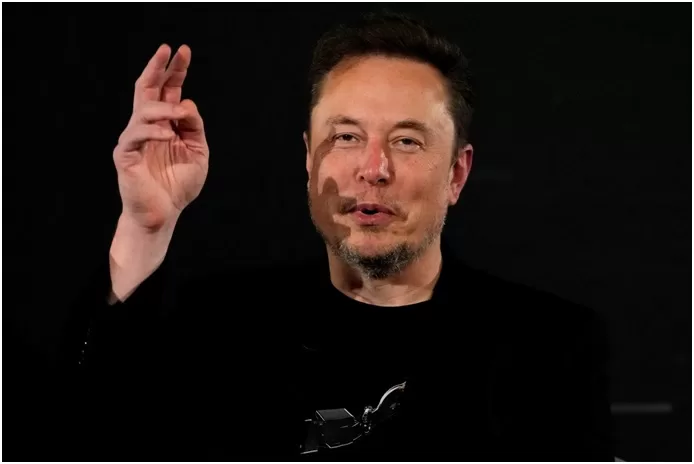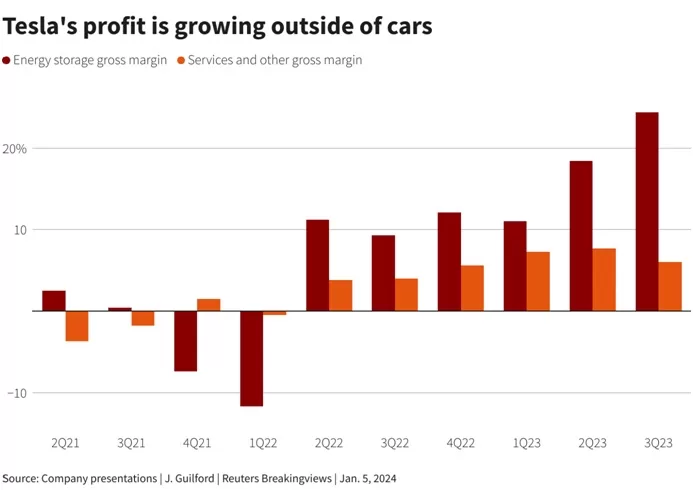Brand Strategy
Navigating Challenges: Elon Musk’s Strategic Moves for Tesla’s Future

Highlights
- Tesla faces challenges in the evolving electric vehicle landscape, recently conceding the global sales crown to BYD.
- Elon Musk emphasizes the importance of Tesla becoming an integral part of U.S. infrastructure, outlining a strategic vision for the future.
- Tesla attributes its success to its China-based factory, contributing to increased automotive gross margin and global exports.
- Risk of heightened competition in China prompts Musk to explore expansion strategies outside, amid profitability concerns.
- In extreme cases of Europe favouring domestic automakers and China becoming hostile, traditional solutions like mergers face obstacles.
- Delayed promises of revolutionary AI aside, Tesla’s diverse offerings, especially in energy storage, emerge as pivotal assets.
- Tesla dominates the U.S. market with a significant share in energy storage, becoming a stronghold in addressing renewable energy challenges.
- Tesla’s impact extends beyond EVs, with U.S. automakers adopting its charging port and the company offering a vast network of fast chargers for public use.
- Tesla’s service business, particularly charging, experiences profitable growth, fueled by government subsidies and expanding infrastructure.
- Positioning Tesla as an integral part of America’s energy infrastructure becomes a strategic move, aligning with national policies.
- Despite challenges, Tesla, guided by Musk’s vision, holds the potential to become a national powerhouse, leveraging diverse offerings and infrastructure influence.
Elon Musk, CEO of Tesla and SpaceX, is facing new challenges as the electric vehicle (EV) landscape shifts. Although Tesla recently gave up their global EV sales crown to China-based BYD, there may still be strategies available to him that could strengthen Tesla and make it into a national leader.
Musk recently spoke at an event in London about the importance of Tesla becoming an indispensable component of U.S. infrastructure. Tesla currently finds its profitability being squeezed due to rising trade protectionism, falling behind BYD in global EV sales; yet sales are increasing – and even increasing within China itself!
Tesla credits much of its success to its strategic location in China, where its factory can produce one million cars annually. This production capacity has played an essential role in helping increase Tesla’s automotive gross margin from 20% to 30% by 2022 and serves as the basis for worldwide exporting. The factory in Shanghai serves as Tesla’s export base.
Tesla has enjoyed cordial relations with China’s government and enjoys a good working relationship. However, there’s always the risk of increased competition from domestic industries that have learned from its success and may use that information against Tesla. Elon Musk may try to mitigate this threat by expanding elsewhere; however, doing so could strain relationships with Beijing further and diminish profitability further.
Under an extreme case scenario where Europe favours domestic automakers over China-made ones and China becomes more antagonistic towards European firms, traditional solutions like mergers may not be applicable due to national security concerns.
There is another path for Tesla. While Elon Musk may not fulfil his promises of revolutionary AI or robots anytime soon, his diverse offerings could prove pivotal. Tesla’s energy storage business has seen significant increases in gross margin, leading the U.S. storage market with 25% market share and becoming a stronghold of his portfolio when state power utilities adopt Tesla battery packs as part of renewables’ intermittency solutions.

Navigating Challenges: Elon Musk’s Strategic Moves for Tesla’s Future
Tesla’s impact extends well beyond just electric vehicle sales; U.S. automakers have adopted Tesla’s charging port and it now offers the largest network of fast chargers open for public use. As its service business housing charging has seen greater profitability and government subsidies help fuel its expansion.
Tesla stands to become not only a car company but an integral component of America’s energy infrastructure as its CEO Elon Musk can strategically position the firm to benefit directly from national policies in a manner reminiscent of domestic chip pioneer Intel.
As Elon Musk navigates these difficulties, Tesla still stands a chance of becoming a national powerhouse. Leveraging their diverse offerings, energy storage business and infrastructure influence may prove vital in securing global success for Tesla in future.

















































